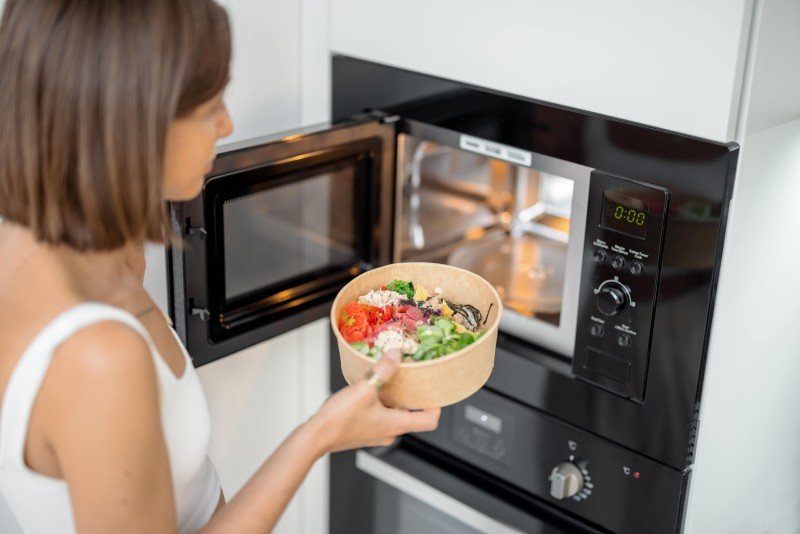Could Cookers And Hobs Be The Answer To Dealing With 2024?
Understanding Cookers and Hobs: A Comprehensive Guide
Cooking is an essential element of every day life, and the development of kitchen devices plays a considerable function in how effectively and efficiently individuals prepare their meals. Amongst these appliances, cookers and hobs are two of the most necessary instruments found in contemporary cooking areas. This short article delves into the differences between cookers and hobs, examines their various types, and offers insights on their functions, upkeep, and choice procedure.
What are Cookers and Hobs?
Cookers
Cookers are thorough kitchen devices created for cooking tasks, typically integrating an oven and a hob. They can be found in different configurations and types, dealing with varied cooking requirements and preferences.
Hobs
Hobs, on the other hand, are more focused devices primarily utilized for boiling, frying, and other stovetop cooking methods. Hobs can be standalone systems or an integrated part of bigger cookers.
Function
Cookers
Hobs
Function
Combines oven and hob
Stovetop cooking only
Style
All-in-one unit
Different unit or integrated
Types
Electric, gas, double fuel
Gas, electric, induction
Installation
Enables more flexibility
Built into the counter top
Rate Range
Typically higher
Differs extensively
Types of Cookers
1. Electric Cookers
Electric cookers use electrical power as their primary source of power. They often include a built-in oven and multiple cooking zones on the hob.
Benefits:
- Even heat circulation
- Available in various styles (e.g., freestanding, integrated)
2. Gas Cookers
Gas cookers work on natural gas or melted petroleum gas (LPG). ovensandhobs.uk provide immediate heat control, making them a preferred amongst professional chefs.
Benefits:
- Instant heat modifications
- More budget friendly operational costs
3. Dual Fuel Cookers
Dual fuel cookers integrate the heat of gas with the performance of electric ovens. This setup allows for the best of both worlds, offering control and consistent outcomes.
Benefits:
- Flexible cooking options
- Accurate control over stovetop cooking and baking
4. Variety Cookers
Range cookers are bigger and more effective than standard cookers, including numerous ovens and hobs for comprehensive cooking jobs.
Advantages:
- Ideal for big families or cooking for occasions
- Uses various cooking options in one device
Types of Hobs
1. Gas Hobs
Gas hobs are preferred for their quick heating and strong flame, making them exceptional for searing and stir-frying.
Benefits:
- Instant heat and control
- Compatible with any kind of cookware
2. Electric Hobs
Electric hobs warm up utilizing electric coils or glass-ceramic surfaces, providing a modern appearance and efficient cooking.
Advantages:
- Easier to clean up
- Uniform surface area appropriate for numerous pots and pans
3. Induction Hobs
Induction hobs utilize magnetic fields to heat pots and pans directly, providing quickly and energy-efficient cooking.
Advantages:
- Safe (cool surface area after getting rid of pots and pans)
- Energy-efficient and precise
4. Solid Plate Hobs
These standard hobs utilize solid electric plates that warm up gradually.
Benefits:
- Rugged and long lasting
- Typically more budget-friendly than other types
Secret Features to Consider
When picking a cooker or hob, a number of functions must be taken into consideration:
- Size and Space: Consider the size of your kitchen and the quantity of workspace required.
- Cooking Style: Choose based on preference— gas for control, induction for performance, etc.
- Efficiency Ratings: Look for energy-efficient models to lower utility expenses.
- Relieve of Cleaning: Smooth surfaces facilitate simple maintenance.
- Safety Features: Automatic shutoff, flame failure gadgets, and child locks boost safety.
Maintenance Tips
Preserving cookers and hobs extends their life expectancy and guarantees safe operations.
- Routine Cleaning: Wipe down surfaces after use to avoid accumulation.
- Examine Seals: Check oven door seals routinely for wear and tear to keep efficiency.
- Service Regularly: Schedule expert maintenance a minimum of once a year.
- Suitable Cookware: Use pots and pans suitable for your hob type to prevent damage.
Often Asked Questions (FAQs)
What is the distinction in between a cooker and a hob?
A cooker integrates an oven and hob in one system, while a hob is usually a standalone home appliance for stovetop cooking.
Do I need an expert to install a gas cooker or hob?
Yes, expert installation is suggested for gas appliances to make sure safety and compliance with local policies.
Can I utilize any type of cookware on induction hobs?
Induction hobs require magnetic cookware. Stainless steel or cast iron pots work best. Non-magnetic products will not warm up.
Are electric cookers more energy-efficient than gas cookers?
While both have benefits, electric cookers tend to be more energy-efficient total, especially with modern, high-efficiency models.
How often should I clean my cooker or hob?
It is best to clean them after each use and carry out an extensive cleansing weekly to prevent buildup and residue.
Comprehending the distinctions, features, types, and upkeep ideas for cookers and hobs is important for any home cook. By picking the best device fit to their culinary needs, users can improve their cooking experience, making meal preparation an effective and pleasant chore. Whether selecting the instant control of gas or the smooth efficiency of induction, picking the proper cooker or hob can result in an especially improved kitchen experience.
